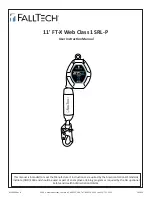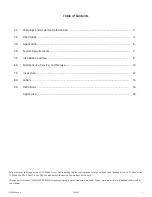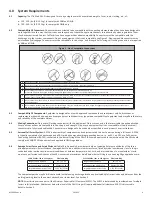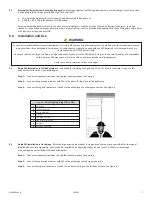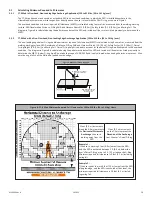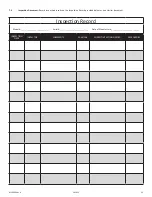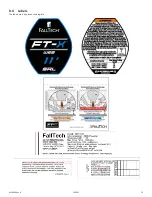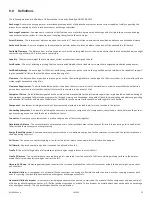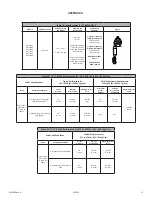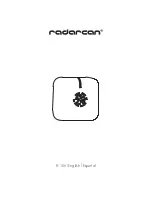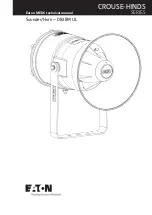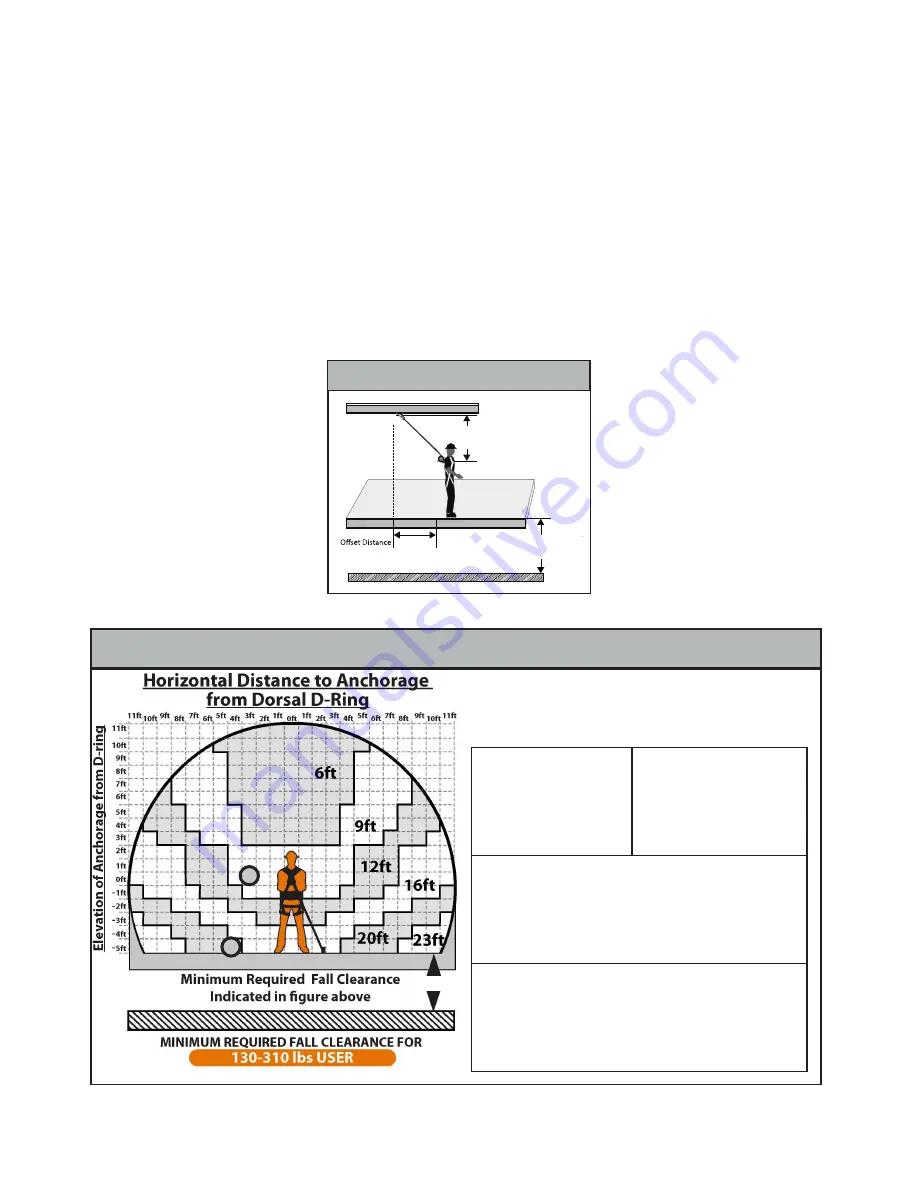
1 foot (0.3 m) increments
along the X-Axis represents
the
Horizontal Distance to
Anchorage
the user is
working away from the
SRD
1 foot (0.3 m) increments
up the Y-Axis represent the
Elevation of the Anchorage
from the user’s Dorsal D-Ring
Example 1:
If the user is working 3 feet (0.9 m) away from the SRD,
and the SRD is anchored between 1 ft (0.3 m) below the
user’s Dorsal D-Ring or up to 2 ft (1.1 m) above the D-Ring.
Minimum required fall clearance is 9 feet (2.7 m) including
swing fall.
Example 2:
If the user needs to work 4 feet (1.2 m) away from the SRD
along the edge, and the SRD is anchored at foot level, the
minimum required fall clearance is 20 feet (6.1 m) includ-
ing swing fall.
102022
MSRD26 Rev B
10
1
2
Figure 6 - FT-X Web Minimum Required Fall Clearance for 130 to 310 lbs. (59 to 141 kg) Users
5.5
Calculating Minimum Required Fall Clearance
5.5.1
FT-X Web in Overhead, Non-Leading Edge Anchorage Application [130 to 310 lbs. (59 to 141 kg) user]
The FT-X may be used may be used as a standard SRD in an overhead condition, in which the SRD is installed anywhere in the
allowable attachment area, which ranges from directly above the user to level with the FBH D-ring, as shown in Figure 5.
The overhead condition minimum required fall clearance (MRFC) is calculated using four metrics, measured from the walking-working
surface: SRD Deceleration Distance, D-Ring Shift and Harness Stretch [1 ft (0.3m)], Safety Factor [1.5 ft (0.5m)], and Swing Fall. The
diagram in Figure 6 is calculated using the performance data of the SRD and includes all four metrics listed previously to determine the
MRFC.
5.5.2
FT-X Web with a Non-Overhead, Non-Leading Edge Anchorage Application [130 to 310 lbs. (59 to 141 kg) user]
The non-leading edge below D-ring condition minimum required fall clearance (MRFC) is calculated using five metrics, measured from the
walking-working surface: SRD Deceleration Distance, D-Ring Shift and Harness Stretch [1 ft (0.3m)], Safety Factor [1.5 ft (0.5m)], Dorsal
D-ring Height [5 ft (1.5m)], and Swing Fall. Dorsal D-ring height is added to account for the below D-ring tie-off compared to the overhead
condition. The diagram in Figure 8 is calculated using the performance data of the SRD and includes all five metrics listed previously to
determine the MRFC. Below D-ring tie-off is outside the scope of ANSI Z359 and is only allowed when no edge hazards are present. At no
point during a fall shall the lifeline be loaded over any edge.
.5
28.0
X
-SRD Anchorage Height
Above Dorsal D-ring
Z
- Minimum Required
Fall Clearance From
Working Surface
Y
- Lateral
X
-Set -Back
Distance
Y
Z
- Minimum Required
Fall Clearance From
Working Surface
Figure 4 - MRFC Non-Overhead Anchorage
412
-061
12 R
ev D
41
2-0
611
2 R
ev D
Z
- Minimum Required
Fall Clearance From
Working Surface
Y
X
-Set -Back
Distance
Figure 5 - MRFC Overhead Anchorage

